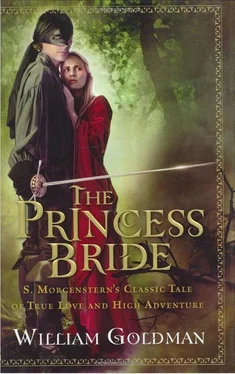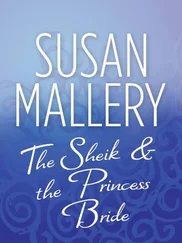The next night she simply refused to go to sleep. Instead, she walked and read and did needlework and drank cup after cup of steaming tea from the Indies. She felt sick with weariness, of course, but such was her fear of what she might dream that she preferred any waking discomfort to whatever sleep might have to offer, and at dawn her mother was pregnant—no, more than pregnant; her mother was having a baby—and as Buttercup stood there in the corner of the room, she watched herself being born and her father gasped at her beauty and so did her mother and the midwife was the first to show concern. The midwife was a sweet woman, known throughout the village for her love of babies, and she said, "Look—trouble—" and the father said, "What trouble? Where before did you ever see such beauty?" and the midwife said, "Don't you understand why she was given such beauty? It's because she has no heart, here, listen; the baby is alive but there is no beat" and she held Buttercup's chest against the father's ear and the father could only nod and say, "We must find a miracle man to place a heart inside" but the midwife said, "That would be wrong, I think; I've heard before of creatures like this, the heartless ones, and as they grow bigger they get more and more beautiful and behind them is nothing but broken bodies and shattered souls, and these without hearts are anguish bringers, and my advice would be, since you're both still young, to have another child, a different child, and be rid of this one now, but, of course, the final decision is up to you" and the father said to the mother, "Well?" and the mother said, "Since the midwife is the kindest person in the village, she must know a monster when she sees one; let's get to it," so Buttercup's father and Buttercup's mother put their hands to the baby's throat and the baby began to gasp. Even when Buttercup was awake again, at dawn, with fifty-seven days to go till her marriage, she could not stop gasping.
From then on, the nightmares became simply too frightening.
When there were fifty days to go, Buttercup knocked, one night, on the door to Prince Humperdinck's chambers. She entered when he bid her to. "I see trouble," he said. "You look very ill." And so she did. Beautiful, of course. Still that. But in no way well.
Buttercup did not see quite how to begin.
He ushered her into a chair. He got her water. She sipped at it, staring dead ahead. He put the glass to one side.
"At your convenience, Princess," he said.
"It comes to this," Buttercup began. "In the Fire Swamp, I made the worst mistake in all the world. I love Westley. I always have. It seems I always will. I did not know this when you came to me. Please believe what I am about to say: when you said that I must marry you or face death, I answered, 'Kill me.' I meant that. I mean this now too: if you say I must marry you in fifty days, I will be dead by morning."
The Prince was literally stunned.
After a long moment, he knelt by Buttercup's chair and, in his gentlest voice, started to speak: "I admit that when we first became engaged, there was to be no love involved. That was as much my choice as yours, though the notion may have come from you. But surely you must have noticed, in this last month of parties and festivities, a certain warming of my attitude."
"I have. You have been both sweet and noble."
"Thank you. Having said that, I hope you appreciate how difficult this next sentence is for me to say: I would die myself rather than cause you unhappiness by standing in the way of your marrying the man you love."
Buttercup wanted almost to weep with gratitude. She said: "I will bless you all my days for your kindness." Then she stood. "So it's settled. Our wedding is off."
He stood too. "Except for perhaps one thing."
"That being?"
"Have you considered the possibility that he might not now want any longer to marry you?"
Until that moment, she had not.
"You were, I hate to remind you, not altogether gentle with his emotions in the Fire Swamp. Forgive me for saying that, beloved, but you did leave him in the lurch, in a manner of speaking."
Buttercup sat down hard, her turn now to be stunned.
Humperdinck knelt again beside her. "This Westley of yours, this sailor boy; he has pride?"
Buttercup managed to whisper, "More than any man alive, I sometimes think."
"Well consider, then, dearest. Here he is, off sailing somewhere with the Dread Pirate Roberts; he has had a month to survive the emotional scars you dealt him. What if he wants now to remain single? Or, worse, what if he has found another?"
Buttercup was now even beyond whispering.
"I think, sweetest child, that we should strike a bargain, you and I: if Westley wants to marry you still, bless you both. If, for reasons unpleasant to mention, his pride will not let him, then you will marry me, as planned, and be the Queen of Florin."
"He couldn't be married. I'm sure. Not my Westley." She looked at the Prince. "But how can I find out?"
"What about this: you write him a letter, telling him everything. We'll make four copies. I'll take my four fastest ships and order them off in all directions. The Dread Pirate Roberts is not often more than a month's sail from Florin. Whichever of my ships finds him will run the white flag of truce, deliver your letter, and Westley can decide. If 'no,' he can speak that message to my captain. If 'yes,' my captain will sail him here to you, and I will have to content myself somehow with a lesser bride."
"I think—I'm not sure —but I definitely think, that this is the most generous decision I have yet heard."
"Do me this favor then in return: until we know Westley's intentions, one way or another, let us continue as we have, so the festivities will not be halted. And if I seem too fond of you, remember that I cannot help myself."
"Agreed," Buttercup said, going to the door, but not before she kissed his cheek.
He followed her. "Off with you now and write your letter," and he returned the kiss, smiling with his eyes at her until the corridor curved her from his sight. There was no doubt whatsoever in his mind that he was going to seem too fond of her in the days ahead. Because when she died of murder on their wedding night, it was crucial that all Florin realize the depth of his love, the epochal size of his loss, since then no one would dare hesitate to follow him in the revenge war he was to launch against Guilder.
At first, when he hired the Sicilian, he was convinced it was best that someone else do her in, all the while making it appear the work of soldiers from Guilder. And when the man in black had somehow materialized to spoil his plans, the Prince came close to going insane with rage. But now his basically optimistic nature had reasserted itself: everything always worked out for the best. The people were infatuated with Buttercup now as they had never been before her kidnapping. And when he announced from his castle balcony that she had been murdered—he already saw the scene in his mind: he would arrive just too late to save her from strangling but soon enough to see the Guilderian soldiers leaping from the window of his bedroom to the soft ground below—when he made that speech to the masses on the five hundredth anniversary of his country, well, there wouldn't be a dry eye in the Square. And although he was just the least bit perturbed, since he had never actually killed a woman before with his bare hands, there was a first time for everything. Besides, if you wanted something done right, you did it yourself.
THAT NIGHT, THEY began to torture Westley. Count Rugen did the actual pain inducing; the Prince simply sat by, asking questions out loud, inwardly admiring the Count's skill.
The Count really cared about pain. The whys behind the screams interested him fully as much as the anguish itself. And whereas the Prince spent his life in physically following the hunt, Count Rugen read and studied anything he could get his hands on dealing with the subject of Distress.
Читать дальше












